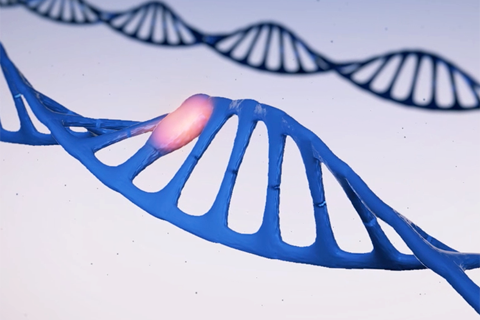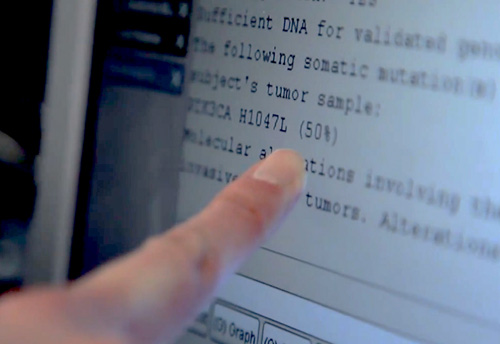Learn More about Cancer Genomics
What is Cancer Genomics?
All cancers arise from changes that occur in the DNA of cells. DNA is the chemical set of instructions inside each cell that tells the cell what to do. The complete set of DNA within a species is called the genome. When the DNA instructions have mistakes in them, cells may not function normally and may grow out of control, causing cancer. These cancer-causing changes in DNA, called mutations, can be inherited but most are acquired throughout life. The study of genes associated with cancer is referred to as cancer genomics.
While cancer was once thought of as a single disease that affected many different parts of the body, researchers now know that there are differences in the DNA makeup of cancer cells of each patient and that changes in the cancer’s DNA can cause each cancer to have a unique behaviour. That’s why two patients who have cancer in the same part of the body may respond differently to the same treatment. Testing for mutations in cancer cells is known as molecular profiling.

Why is Molecular Profiling Important?
By looking at the molecular profile of many tumour samples from many different patients, we will be able to gain a better understanding of what makes one cancer different from another, which is important because it will help explain why two patients with the same type of cancer may respond very differently to the same treatment. By connecting specific genomic changes with specific outcomes, we will be able to develop more effective and individualized ways of treating each cancer patient.
Genomic changes in cancer can potentially provide information on benefit or resistance to certain targeted cancer treatments. We can already see the success of targeted cancer treatments in various cancers, such as use of imatinib in chronic myelogenous leukemia (CML); trastuzumab in human epidermal growth factor receptor-2 (HER2) amplified breast; and epidermal growth factor receptor (EGFR) inhibitors in lung cancers. In addition to these approved settings and commercially available agents, there are early and promising results testing PARP inhibitors in patients with germline BRCA1/2 mutations, and ALK inhibitors in non-small cell lung carcinoma patients with ALK mutations.
Molecular Profiling Initiative at Princess Margaret

Comprehensive molecular profiling is currently not offered as standard of care in the treatment of solid malignancies in Ontario. Patients only receive testing for a single gene mutation that has been shown to influence treatment response. Examples of this include testing for EGFR mutations in non-small cell lung cancer patients, BRAF mutations in melanoma patients, KRAS mutations in colorectal patients and HER2 amplification in breast patients. Patients interested in more comprehensive genomic analysis of their cancer to inform clinical decision making must pay privately for testing via for-profit vendors. At the Princess Margaret, the CGP is offering comprehensive molecular profiling free-of-charge to our patients as part of one of our many research studies. Our testing currently includes nearly 50 genes known to be involved in cancer. In the future, we anticipate expanding the number of genes that we test for.


